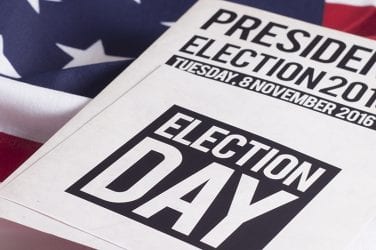The 2024 U.S. Presidential Election is shaping up to be a landmark event in American political history. With a backdrop of legal battles, policy debates, and shifting public sentiments, the race for the White House is more than just a political contest; it’s a reflection of a nation at a crossroads.
The Republican Nominee Race: Trump’s Legal Challenges and Party Dynamics
Donald Trump’s candidacy in the Republican race is significantly impacted by his legal challenges. For instance, his involvement in various lawsuits and the pivotal Colorado case, where he’s been barred from the ballot under an insurrection clause, could significantly influence his candidacy.
This legal situation could deter some Republican voters and sway public opinion, potentially weakening his position in key battleground states. Moreover, these challenges might lead to a divided Republican base, where some may seek a different candidate to avoid the controversies associated with Trump. Such divisions within the party could affect its overall strategy and unity, making the path to the White House more complex.
Democratic Counterplay: Biden’s Administration and Strategic Focus
President Biden’s administration faces its challenges, which could impact the Democratic party’s prospects. The debates around policy effectiveness, particularly concerning the economy, and personal controversies, such as those involving his son’s business dealings, might affect Biden’s appeal to some voters.
If these issues aren’t addressed effectively, they could result in a loss of support among key demographic groups, like independents or moderate Democrats. Furthermore, the party’s focus on issues like abortion rights, following the overturning of Roe v. Wade, aims to galvanize support, especially among women and young voters. However, the success of this strategy depends on how these issues resonate with the broader electorate and if they can overshadow economic concerns, which remain a top priority for many Americans.
Economic Front and Center: Inflation, Spending, and Public Sentiment
The economy, specifically inflation and federal spending, is a central issue in the election. The Republican push for tax cuts and reduced federal spending is aimed at appealing to voters concerned about the economy and government overreach.
On the other hand, Democrats, emphasizing infrastructure investments and wage growth, seek to attract voters who prioritize economic stability and job creation. The public’s mixed sentiment on economic recovery and inflation could sway voter preference. If the economy shows signs of improvement, it might bolster the Democratic position, but continued economic struggles could lead to increased support for Republican candidates.
Immigration and Border Policies: Divisions and Policy Directions
Immigration policy, particularly around the U.S.-Mexico border, remains a contentious issue. The Republicans’ call for stricter border security aligns with their base’s concerns about national security and illegal immigration.
This stance could strengthen their appeal among voters prioritizing immigration control. Conversely, Democrats’ focus on a humane immigration system might resonate with voters concerned about human rights and international reputation. This division highlights contrasting views on national security versus humanitarian responsibilities, which could influence voter decisions, especially in states with significant immigrant populations.
National Security and Crime: Rising Crime Rates and Political Responses
Rising crime rates across the nation have become a significant concern. The Republicans’ emphasis on law and order could appeal to voters concerned about public safety, potentially gaining support in suburban and urban areas affected by crime. Democrats, focusing on community engagement and reform, aim to address the root causes of crime, which might resonate with voters who favor a more holistic approach to public safety. This issue’s impact on voter decisions will likely vary regionally, influencing key swing states where crime rates have become a prominent concern.
Foreign Policy Arena: China, Ukraine, and Global Stance
Foreign policy, especially concerning China and Ukraine, is a major campaign issue. Republican candidates’ tough stance on China could appeal to voters concerned about national security and economic competition. Similarly, differing views on Ukraine, with some Republicans questioning the extent of U.S. involvement, could impact voters’ perceptions of the party’s foreign policy priorities.
Democrats’ approach to these issues, focusing on diplomacy and international alliances, might attract voters who prioritize global stability and multilateralism. These foreign policy positions could sway specific voter groups, particularly those with strong views on international affairs.
The Role of Media: Coverage Impact and Public Perception
The media’s role in shaping public perception cannot be overstated. From social media to traditional news outlets, the coverage of candidates and issues influences the electorate’s understanding and opinions. The media’s portrayal of the election is critical in framing the national conversation around the race.
Technological Influence in Campaigning: Digital Strategies and Voter Engagement
The use of technology in campaigning has evolved significantly. Digital platforms are now integral to reaching voters, with strategies focusing on social media engagement, targeted advertising, and data-driven voter outreach. This technological shift has transformed the way campaigns are conducted and voter preferences are gauged.
The International Perspective: Global Implications of the Election
The 2024 election has considerable international implications, particularly in terms of U.S. foreign policy. The outcome of the election could redefine America’s relationships with key global players and its approach to international conflicts and alliances.
Key Battleground States: Decisive Electoral Influence
The battleground states, including Michigan, Pennsylvania, Wisconsin, Arizona, Georgia, Nevada, and North Carolina, will play a decisive role. The political dynamics in these states are complex, with shifting demographics and voter priorities influencing the election outcome.
As we enter 2024, sportsbook odds are sure to adjust based on the Republican nominee and any major news that could swing voters’ choice.
As of December 26, Donald Trump (+137) has best odds to win the 2024 Presidential Election, ahead of President Joe Biden (+187), Nikki Haley (+800), and Gavin Newsom (+1000), among others.
Electoral College Mechanics
The Electoral College system, with its unique mechanics, plays a critical role in determining the election’s outcome. Understanding how this system works is key to comprehending the strategies deployed by both parties in securing the necessary electoral votes.
This process, while often controversial, is fundamental to the American political system, highlighting the importance of each state’s voting outcome and the strategies both parties use to secure electoral college votes.
The Verdict of the Polls: Public Opinion and Predictions
Polls offer a glimpse into public opinion, though their accuracy can vary. They provide insights into the electorate’s mood and preferences, yet the dynamic nature of political campaigns means that predictions based on polls can quickly change. Understanding the limitations and the evolving nature of poll data is crucial in analyzing the potential outcomes of the election.
Conclusion
The 2024 U.S. Presidential Election is more than just a battle for the White House; it’s a reflection of a nation grappling with its identity, values, and future direction. As candidates from both major parties navigate this complex landscape, they face challenges that are not only political but also societal and ethical.
With the world watching, this election is set to be a defining moment in American history, shaping the country’s path for years to come. The unfolding drama, with its twists and turns, promises to keep the nation and observers globally engaged and invested in the outcome of this critical electoral contest.







